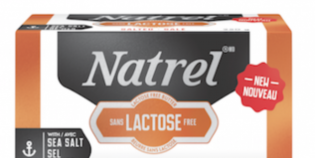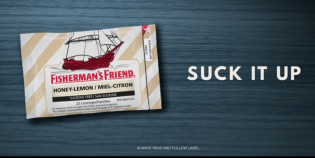As a young boy, Tim Walker would often tag along with his father on his regular trips to Canadian Tire. The Winnipeg father of two is still a regular visitor, but now he’s also helping determine which products are worthy of the company’s seal of approval.
In November, Walker was enlisted as one of the 15,000 participants in Canadian Tire’s “Tested for Life in Canada” program, which asks everyday Canadians to provide feedback – both positive and negative – based on real-world use of some of its approximately 100,000 products.
Most recently, Walker was asked to test the Greenworks Pro 80-volt cordless snow blower. “I really gave it a workout in the backyard,” he says. “[My kids] pack the snow down pretty good, but this snow blower was able to churn it up. The other thing with anything battery-operated is battery life, but it kept going as long as I needed it.”
The snow blower was the third product reviewed by Walker, including the Fantail Cord featuring multiple plug sockets and a Mastercraft 16-inch toolbox that was quickly appropriated by his son for his toy cars. “He threw it down the stairs and it didn’t break, so that’s a good sign,” says Walker. “It passed the durability test of a three-year-old.”
Conceived as part of Canadian Tire’s 2013 strategic plan, Tested for Life in Canada is intended to reflect the company’s commitment to supplying Canadians with products that reflect “the jobs and joys of life in Canada,” says vice-president of marketing Susan O’Brien.
“We take pride in the fact that we understand the country, so we thought ‘Is there a way we can take that one step further?’” she adds. “The best way you can possibly know if your products are resonating with Canadians is to actually talk with them.”
Canadian Tire knew focus groups wouldn’t enable it to have the type of intimate and candid conversation it wanted to have with customers, so it first set out to recruit tester panels via its weekly e-flyer, received by approximately 1.3 million people.
Approximately 75,000 people volunteered, though it quickly became apparent that Canadian Tire’s knowledge of respondents wasn’t as deep as it hoped. The company then asked users to fill out a comprehensive survey asking for more extensive information, enabling it to pare the list down to a more manageable 15,000 people.
“We know everything about them,” says O’Brien. “We can segment them based on their likes, their needs, their region. It helps for us when we say we’re going to test an auto part, versus Christmas lights. We have a much better way to find the right person who’ll be able to tell us if the product is good or not.”
Tested products are typically selected based on seasonality (hoses for the summer lawn-care season, for example), or buyers looking for feedback on products they believe have real potential.
The company aims to have 10 “real” Canadians test each product, ideally with representation from every province. Only products receiving an average four-and-a-half star product rating – which suggests they have gone “above and beyond” customer requirements – receive the Tested for Life badge.
More than 120 products have received the “Tested” badge to date, with another 300 products being tested this year.
The company also creates testimonials incorporating tester feedback that are often added to a product description. O’Brien describes the testimonials as “core” to the program. “When you can see a customer making a testimonial, it really does make the buying decision a whole lot easier,” she says.
Products receiving the Tested for Life badge tend to receive marketing support in the form of TV spots or inclusion in the retailer’s weekly flyer (“There’s a lot of enhanced marketing support that comes with earning the badge,” said O’Brien), which makes it difficult to isolate the sales impact of a favourable rating by testers.
However, sales of the tested MotoMaster Eliminator Ultra battery were up 30% last year, far exceeding the battery category as a whole. Tested products also tend to produce a “halo” effect for entire categories, with sales in the premium snowbrush category (which included the tested Garant Scratch Free Snowbrush) increasing by 21% year-over-year, and sales in the drill bit category (including the tested Maximum 7 Edge titanium coated set) up 27%.
“We’ve effectively been able to trade the market up,” says O’Brien. “What we really hope is that there is some credibility granted to the entire category.”
O’Brien believes the program has also been instrumental in altering consumer perception of Canadian Tire. In a national study conducted by Insignia Research late last year, 46% of people polled say Canadian Tire is “strongly” associated with the statement “Understands the needs of Canadians better than other retailers.” That number is more than twice that of its next competitor.
O’Brien says that is one of the program’s key metrics. “As we increase the scope of this program, we want Canadians to feel ‘That store completely gets me.’ That’s the biggest win here,” she says.
The Insignia study also found perceptions of Canadian Tire selling poor quality products are down 25% since 2012, while its product defect rate has been reduced by 23% since 2008.
While acknowledging it’s difficult to draw a direct line between the “Tested for Life…” program and those results, O’Brien believes there is a strong correlation.
The next step, says O’Brien, is using the panel in the development of its private label brands, using its feedback to find gaps in the market and then developing products with their input. “That’s where the program is ultimately going to go.”
Tim Walker, meanwhile, is currently in the process of building a house on a two-and-a-half acre lot in the rural municipality of West St. Paul. He’s definitely gonna need a bigger snow blower.









